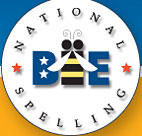In the past, I have read a lot of books on World War 2/the Holocaust. There are a lot of good German-originated words in them, but I had to look each one up in Webster's Third. Some words are austausch, Anschluss, and blitzkrieg. Here are some World War 2 books I recommend, The Diary of a Young Girl, The Hiding Place, Four Perfect Pebbles, Biography of Anne Frank: The Biography, Survivors, and Number the Stars (this was my favorite book when I was a little girl). You will learn a lot of new words from these books,
Here is a list of books on the Holocaust:
http://www.goodreads.com/list/show/1720.Best_Holocaust_Books
Time for more German rules:
The "ch" and "sh" sounds are spelled sch. (examples: seneschal, kitsch, bergschrund) Glitch is an exception to this rule.
The "k" is spelled with a g. (examples: Bundestag, Jugendstil)
The "k" + guttural sounds is spelled lich (examples: geistlich, frohlich). In choir, the director says it is very important to pronounce the ch words with the guttural sounds, or else the Germans will laugh (I don't know if that's true, but the director said it). In songs such as "Stille Nacht" (Silent Night), "O Come, Little Children" (which we have a verse in German: "Ihr Kinderlein Kommet"), "Ade zur Guten Nacht" (Farewell and Goodnight), and "Kling Glockchen" (Ring, Little Bell), there are so many words with the guttural sound.
The "v" sound is spelled with a w. (examples: Weimaraner, leberwurst, weltpolitik)
German Dog Breeds: Did you know that German has several names of dog breeds?
Here are some:
affenpinscher
Doberman
dachshund
Weimaraner
I do not believe that I finished the German section earlier than I expected. There are thousands of more rules to look up. Whenever I can, I will start doing Italian-derived words. If you love food and/or you are a musician, you may recognize a lot of these words.

No comments:
Post a Comment